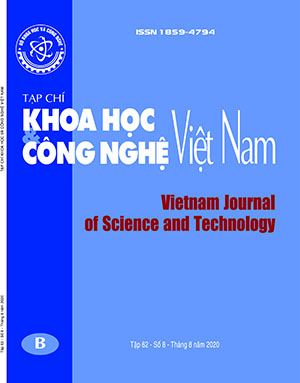Evaluation of properties of the biodiesel synthesised from waste fish fat/oil in seafood processing facilities and ability of biodiesel blending with diesel fuel satisfying Vietnamese National Standards
Abstract
Biodiesel is considered as one of the ideal fuels to replace traditional fossil fuel sources. This report exhibited the role of biodiesel through the mixing ability of biodiesel synthesised from oil/fat of fish waste in seafood processing facilities into diesel satisfying technical and environmental indicators according to TCVN 5689:2013 and QCVN 1:2015/BKHCN for diesel fuels and biofuels. The result showed that oil/fat of fish waste recovered from catfish processing is a potential source for biodiesel production. The result of examining the properties of the original fuel B0 (diesel), B100, and the blending samples B2, B4, B6, B8, B10, B12 revealed that increasing mixing rates will improve the burning properties of fuels, in particular dramatically increase the cetane number, which is an important indicator that increases the autoinflammation of fuel, keeps running smoothly and its exhaust contains fewer hazardous components. The blending of biodiesel significantly reduced the sulfur content, which is an important environmental target relating to the emission standards, needs special attention in the context of Vietnam is following the Euro 5 emission standards. Other standards relating to fuel storage also showed that the blending with biodiesel improved fire safety as well as the use of fuel in low-temperature conditions.

